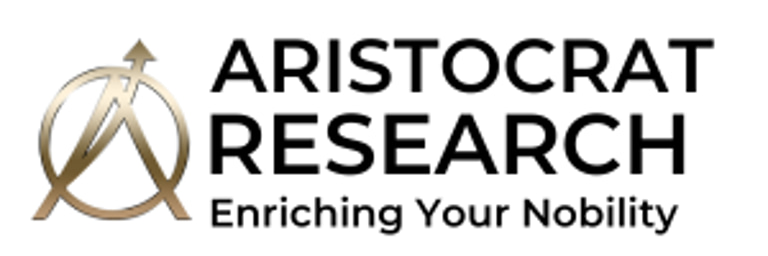Mastering the Art of Academic Writing: Essential Tips for Researchers


Academic writing is a critical skill for researchers. It not only communicates your findings but also contributes to the academic community and helps establish your reputation as a scholar. Mastering this art involves understanding the nuances of clarity, structure, and style. This detailed guide provides essential tips to enhance your academic writing.
Understanding Academic Writing
What is Academic Writing?
Academic writing is a formal style of writing used in universities and scholarly publications. It is characterized by clear, concise, and structured language aimed at communicating complex ideas and research findings effectively.
Importance of Academic Writing
Communication: It helps convey your research to peers, reviewers, and the broader academic community.
Credibility: High-quality writing enhances your credibility as a researcher.
Impact: Well-written papers are more likely to be published, cited, and respected. To know more...
Key Elements of Academic Writing
Clarity and Precision
Be Clear: Use straightforward language to express your ideas.
Be Precise: Avoid vague terms and ensure that your terminology is accurate.
Structure and Organization
Logical Flow: Organize your paper logically with a clear introduction, body, and conclusion.
Headings and Subheadings: Use headings and subheadings to structure your content and guide the reader.
Style and Tone
Formal Tone: Maintain a formal and objective tone throughout your paper.
Avoid Jargon: Use technical terms when necessary, but avoid unnecessary jargon.


Writing Process
Planning and Outlining
Outline Your Paper: Create a detailed outline before you start writing. This helps organize your thoughts and ensures that all critical points are covered.
Set Clear Objectives: Know what you want to achieve with your paper and what key messages you want to convey
Drafting
Write in Stages: Begin with the sections that are easiest for you to write. Often, the methods and results sections are the best places to start.
Stay Focused: Keep your writing focused on your research question and objectives.
Revising and Editing


Revise for Clarity: Ensure that your arguments are clear and logical.
Edit for Precision: Check for grammatical errors, typos, and inconsistencies.
Seek Feedback: Ask colleagues or mentors to review your draft and provide constructive feedback. To know more...
Detailed Tips for Effective Academic Writing
Crafting a Strong Introduction
Context: Provide background information to set the context for your research.
Problem Statement: Clearly state the problem or research question your study addresses.
Objectives: Outline the objectives and significance of your research.
Writing a Comprehensive Literature Review
Summarize Relevant Studies: Discuss previous research related to your topic.
Identify Gaps: Highlight gaps in the existing literature that your research aims to fill.
Establish Theoretical Framework: Provide a theoretical basis for your study.
Describing Your Methods
Detail Procedures: Describe the procedures and methods used in your research insufficient detail.
Justify Choices: Explain why you chose specific methods and how they are appropriate for your study.
Presenting Your Results


Clear Presentation: Present your findings clearly using tables, graphs, and charts where appropriate.
Interpret Results: Explain what your results mean in the context of your research question.
Discussing Your Findings
Concluding Your Paper
Interpretation: Discuss the implications of your findings and how they contribute to the field.
Limitations: Acknowledge any limitations of your study and suggest areas for future research.
Summary: Summarize the main findings of your research.
Implications: Discuss the broader implications of your study.
Future Directions: Suggest directions for future research.
Enhancing Readability and Engagement
Using Visual Aids
Tables and Figures: Use tables, figures, and charts to present data clearly and concisely.
Captions: Provide detailed captions to explain the content of visual aids.
Language and Style
Active Voice: Use active voice to make your writing more engaging and direct.
Conciseness: Be concise and avoid redundant phrases.
Proofreading and Final Checks
Multiple Reviews: Proofread your paper multiple times to catch errors and improve clarity.
Professional Editing: Consider using professional editing services to polish your writing. To know more...
Common Pitfalls to Avoid
Overcomplicating Language
Keep it Simple: Use simple language to explain complex ideas.
Avoid Jargon: Limit the use of jargon to what is necessary and ensure it is well-explained.
Neglecting Structure
Organize Your Paper: Ensure your paper has a clear structure with distinct sections.
Use Headings: Use headings and subheadings to guide the reader.
Ignoring Feedback
Seek Feedback: Always seek feedback from peers and mentors.
Incorporate Suggestions: Use feedback constructively to improve your paper.
Final Thoughts
Mastering the art of academic writing is essential for communicating your research effectively and contributing to the academic community. By following these tips and focusing on clarity, structure, and style, you can enhance your writing skills and increase the impact of your research.
Call to Action
Are you looking to improve your academic writing skills? Our professional services can help you master the art of academic writing and ensure your research is communicated effectively.
Enquire now at a [wa.me/+919894595035?text=authorspark](https://wa.me/+919894595035?text=authorspark) to get expert support and elevate your academic writing. Visit [www.AristocratResearch.com](https://www.AristocratResearch.com) for more information.
